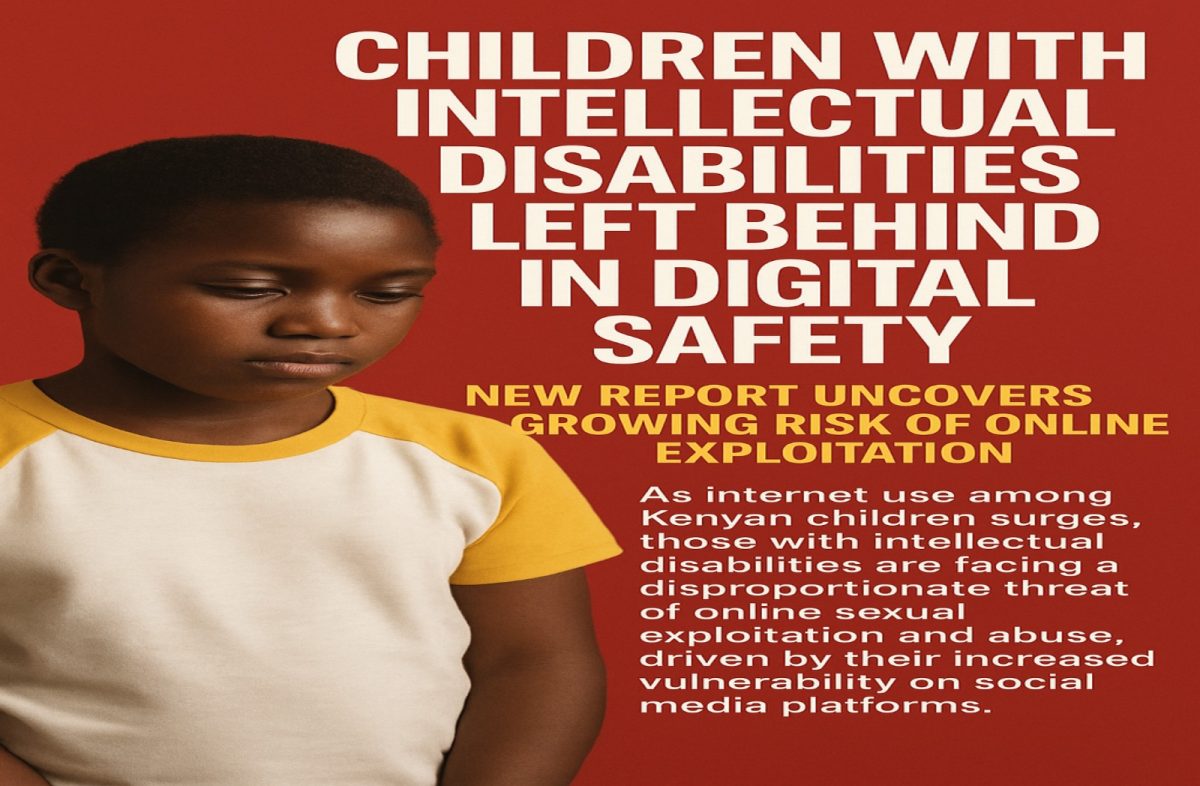Written by Germaine Magethe
As Kenya embraces the digital age, children across the country are increasingly accessing the internet for learning, play, and connection. But for children with intellectual disabilities, the digital space meant to be a tool for empowerment is turning into a dangerous trap. A new report, launched by ZanaAfrica in collaboration with key child-focused partners, has revealed an alarming rise in online sexual exploitation and abuse of children living with intellectual disabilities.
The report, ‘Understanding Online Sexual Exploitation and Abuse of Children with Intellectual Disabilities, paints a stark reality: these children are being disproportionately targeted by online predators, often through popular platforms like TikTok, Facebook, WhatsApp, and YouTube. Their limited ability to communicate, lower digital literacy, and high levels of trust make them especially vulnerable to grooming, manipulation, and digital abuse.
Speaking during the report’s release, Josephine Kisilu, Dean of Studies at the Kenya Institute of Special Education (KISE), expressed deep concern over the increasing incidents involving children with special needs. “Children with intellectual disabilities are being exposed to harmful content and online exploitation at an alarming rate. What’s worse is that many parents and caregivers are unaware this is happening,” she said.
As Mtoto News continues to advocate for safe digital spaces for all children, this report comes as a wake-up call to policymakers, educators, caregivers, and tech platforms. It urges us to pay closer attention to children who are often left out of national conversations, especially those with disabilities.
Children make up nearly a third of all internet users globally, and Kenya is no exception. The Kenya Demographic and Health Survey (2022) shows that internet usage among children increases sharply with age. Yet, despite growing connectivity, children with disabilities remain underserved by protective systems, inclusive education, and legal safeguards.
Beatrice Jane, Executive Director at ZanaAfrica, emphasized that the digital gap is not just about access but about safe access. “We must go beyond giving children devices and the internet. We need to teach them how to use these tools safely, and this includes children with intellectual disabilities,” she said. Beatrice noted that ZanaAfrica’s life skills program, Nia Learning, has already reached over 500,000 adolescents and could be pivotal in embedding digital safety in school curricula.
Megan White Mukuria, ZanaAfrica’s founder, reminded attendees of the importance of recognizing every child’s right to safety offline and online. Drawing from her years of experience working with girls and marginalized groups, she urged for urgent policy reforms and the integration of digital safety lessons into the Competency-Based Curriculum (CBC).
Mtoto News echoes these calls. Our reporting and advocacy consistently spotlight the need for child-friendly, inclusive, and accessible technology. This is especially critical for children with disabilities, who often face stigma, misinformation about their sexuality, and lack of access to age-appropriate sex education.
Also speaking at the event, Wilson Macharia from the International Commission of Jurists (ICJ) emphasized the legal blind spots that continue to expose children to emerging threats, such as live-streamed abuse and AI-generated exploitative content. “We need a stronger legal framework informed by evidence and the voices of those most affected,” he said.
Alice Onsarigo, Program Manager at ZanaAfrica, shared heartbreaking stories of survivors with disabilities who were retraumatized by insensitive reporting systems, including being forced to testify in front of their abusers. She emphasized the need for a justice system that understands the communication needs of children with disabilities and offers support, not additional trauma.
The report offers a series of recommendations that align with Mtoto News’ core mission: to make children visible and their voices heard. These include launching national awareness campaigns, training teachers and caregivers on digital safety, ensuring platforms are inclusive, and investing in disability-inclusive research and policy design.
At Mtoto News, we believe that every child has the right to a safe, supportive environment—on and offline. As this report shows, we must act now to protect children with intellectual disabilities from being left behind or harmed in the digital revolution. The internet should be a place of opportunity, not danger, and we all have a role to play in ensuring that vision becomes reality.

